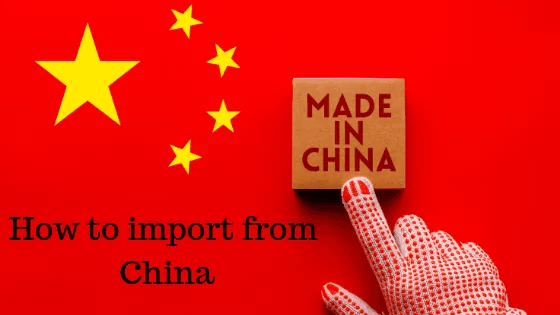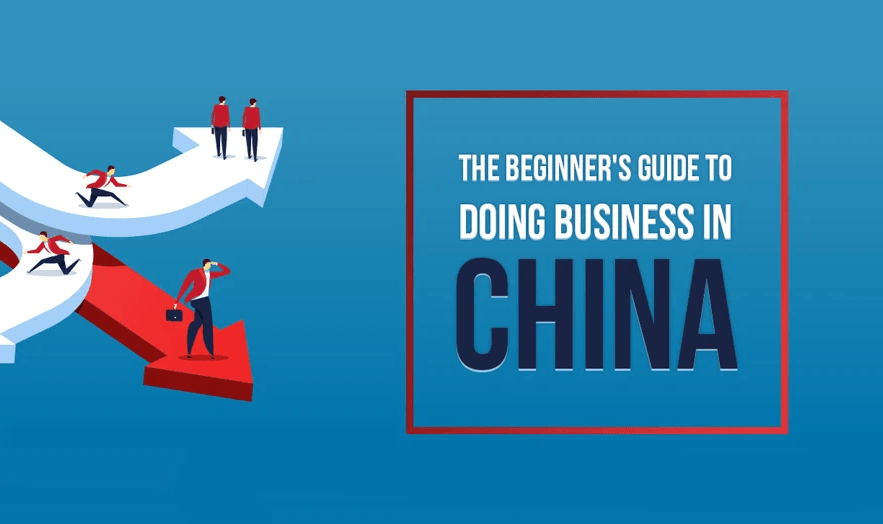Introduction: The Harsh Reality of Small-Scale Importing (No Sugar-Coating, Just Pain with a Side of Humor)
Imagine investing your life savings into a promising business idea, only to find yourself drowning in a sea of logistical nightmares when trying to import products from China. Your entrepreneurial dreams quickly transform from "next big thing" to "what was I thinking?" faster than you can say "container shortage." You're not alone. Thousands of entrepreneurs hit a wall every year, discovering that small-scale importing is far more complex than they ever imagined—like trying to assemble IKEA furniture with no instructions while blindfolded and someone has hidden half the screws.

The Brutal Truth About Small-Scale Importing (Spoiler Alert: It's Not Pretty)
In the global marketplace, size matters—and small buyers are often treated like an afterthought, much like the vegetables on a child's dinner plate. Here are the seven critical challenges that can make or break your China importing dreams (and possibly your will to live):
1. Factory Indifference: You're Just a Number (A Very, Very Small Number)
Small orders are the black sheep of manufacturing. Factories view them with all the enthusiasm of a teenager asked to clean their room. They see your order as:
- Low-priority projects (somewhere between "fix the flickering light in the bathroom" and "maybe someday")
- Minimal profit potential (barely worth the paperwork it's written on)
- Not worth their full attention (like a movie playing in the background while they scroll through their phones)
Pro Tip: Large volume buyers get red-carpet treatment, champagne, and first-name relationships with the factory owner. Your small order? It's more likely to get swept under the rug, possibly discovered years later like that missing sock from the laundry.
Reality Check: When you email asking for updates, the factory representative has to search through their inbox to remember who you are. Meanwhile, they have the purchasing manager from Big Box Store on speed dial.
2. The Priority Queue: Where Small Buyers Finish Last (If They Finish At All)
When factories get busy, they play favorites with all the subtlety of a high school cafeteria. Their decision matrix is brutally simple:
- Bigger orders = Front of the line, VIP access, and possibly a fruit basket
- Smaller orders = Perpetual waiting list, right behind "when we get around to it"
Some factories deliberately overcommit, knowing smaller clients will be the first to be delayed—a practice known in the industry as "hope they forget they ordered something." Your 30-day lead time? More like 90 days—if you're lucky. Think of it as waiting for a table at a popular restaurant, except the hostess keeps seating people who arrived after you because they're ordering the expensive tasting menu.
What They Say vs. What It Means:
- "We'll ship next week" = "We haven't started production yet"
- "Minor delay" = "We haven't bought materials yet"
- "Almost finished" = "We remember you exist, which is a start"
3. The Domino Effect of Minimum Order Quantities (MOQs) (Or: Why Factories Laugh at Your "Small Test Order")
MOQs aren't just a factory problem—they cascade through the entire supply chain like a depressing game of production Jenga:
- Raw material suppliers have their own minimum purchase requirements (often by the ton, not the pound)
- Factories must meet these minimums to even start production (no, they won't buy extra just for your little order)
- Your small order might not clear these fundamental thresholds (mathematics is heartless that way)
Result: Your dream product might never leave the drawing board, like a Hollywood screenplay that everyone likes but nobody wants to finance.
Painful Truth: When you ask to order 500 units and the factory's MOQ is 5,000, your negotiating position is similar to bringing a spoon to a gunfight.

4. Logistics Costs: A Small Buyer's Nightmare (Where Math Becomes Your Enemy)
Part container loads are the financial equivalent of buying a first-class ticket for economy service while sitting next to the lavatory:
- You'll pay 5-10 times more per unit than large importers (who somehow pay less for better service, like some cosmic joke)
- Shipping becomes disproportionately expensive (suddenly that $2 widget costs $8 to import)
- Economies of scale work against you at every turn (it's like being charged for the luxury of not being wealthy)
Shipping Reality: That 40-foot container costs roughly the same whether it's filled with 10,000 units or 1,000. Guess who's paying ten times more per unit? Your calculator will confirm it's you.
The Math That Ruins Dreams: When your competitor orders 10,000 units and you order 500, they might pay \1 per unit for shipping while you pay \10. Now try competing on price while maintaining margins thinner than dollar store toilet paper.
5. Resource Limitations: The David vs. Goliath Scenario (Except David Forgot His Slingshot)
Small buyers are fighting an uphill battle with:
- Limited funds for proper factory research (Google and hope for the best!)
- Minimal quality control budgets (crossing fingers is not a quality assurance method, but it's free!)
- Lack of on-the-ground representation (your "team in China" is actually just you with the Google Translate app)
- Higher risk of miscommunication and errors (nothing translates cultural business expectations like emojis)
Ironically, smaller orders often require MORE management, not less. It's like needing a full-time babysitter for a houseplant while the redwood forest takes care of itself.
The Paradox: You need more resources to manage small orders successfully, but you have small orders precisely because you lack resources. It's a chicken-and-egg problem, except both the chicken and egg are expensive and on backorder.

6. Customization: A Luxury for the Big Players (Your "Special Requests" Are Adorable)
Chinese manufacturers are volume-driven machines. They want:
- Standardized products (ideally identical to what they already make)
- Minimal modifications ("Can we change the color from blue to slightly different blue?" is a major ask)
- Predictable production lines (your "simple tweak" might require retooling an entire production line)
Your unique, complex design? It's more likely to be rejected than refined, or accepted then quietly standardized back to what they normally make while hoping you won't notice the difference.
Customization Translation Guide:
- "Yes, we can do that" often means "We will try something vaguely similar"
- "This is very difficult" means "Not happening unless you add zeros to your order quantity"
- "We need to discuss this further" means "Let me find a polite way to say no"
7. Online Marketplace: A Competitive Bloodbath (Where Your Margins Go to Die)
E-commerce is a zero-sum game for small importers, like trying to open a lemonade stand between two Starbucks locations:
- Established sellers have better pricing (they're buying the lemons at wholesale while you're shopping at the grocery store)
- Existing logistics networks reduce their costs (they have fleets of trucks; you have your cousin's van)
- Low-margin operations squeeze out newcomers (they can profit on pennies; you need dollars)
The Amazon Paradox: Getting on Amazon feels like a win until you realize you're in the Olympics of retail, competing against professional athletes while you just learned to walk.
Marketplace Math: When you and 47 other sellers offer virtually identical products, the only differentiator becomes price—and the race to the bottom begins. Spoiler alert: The bottom isn't profitable.

The Way Forward: Strategies for Small Importers (Or: How to Play a Terrible Hand Without Crying)
- Differentiate or Die: Find a unique angle that larger sellers can't replicate. If your product is exactly like everyone else's, enjoy your new expensive hobby.
- Build Relationships: Network with trading companies that support small buyers. Sometimes having a friend who's friends with the bouncer gets you into the club faster.
- Aggregate Demand: Consider joining importing groups or cooperatives. It's like carpooling, but for shipping containers.
- Focus on Niche Markets: Avoid high-volume, ultra-competitive product categories. You don't need to be the biggest fish in the ocean if you're the only fish in your particular pond.
Conclusion: Hope Isn't Lost (But It Might Be Hiding Under the Couch)
While the challenges are real—and occasionally soul-crushing—smart, adaptable entrepreneurs can still succeed. Knowledge is your greatest weapon against these importing obstacles. That, and a healthy sense of humor, because you'll need it.
Consider this guide the importing equivalent of "The Hunger Games: Small Business Edition." The odds may not be ever in your favor, but at least now you know what you're up against.
Ready to Navigate the China Importing Maze? (With Slightly Less Screaming)
Don't go it alone. Connect with Our ChinafulLink Team experts who understand the landscape and can guide you through the complexities. We've seen things. Terrible, importing things. Let our trauma save you from experiencing your own.
Remember: In the world of importing, being small doesn't mean you can't succeed—it just means you need to be smarter, more creative, and possibly slightly deranged to take on the challenge.
Disclaimer: Side effects of small-scale importing may include insomnia, checking tracking information 37 times per day, developing a love/hate relationship with customs officials, and explaining to friends and family why that shipment that was "definitely arriving next week" six months ago still isn't here.